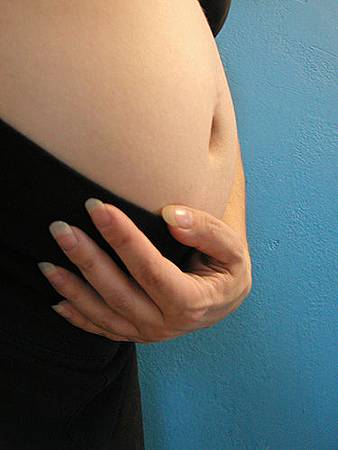
photo credit: massdistraction via photopin cc
Abstract
Background
Pre-eclampsia and eclampsia are common causes of serious morbidity and death. Calcium supplementation may reduce the risk of pre-eclampsia, and may help to prevent preterm birth.
Objectives
To assess the effects of calcium supplementation during pregnancy on hypertensive disorders of pregnancy and related maternal and child outcomes.
Search methods
We searched the Cochrane Pregnancy and Childbirth Group's Trials Register (28 March 2013) and contacted study authors for more data where possible. We updated the search in May 2014 and added the results to the 'Awaiting Classification' section of the review.
Selection criteria
Randomised controlled trials (RCTs) comparing high-dose (at least 1 g daily of calcium) or low-dose calcium supplementation during pregnancy with placebo or no calcium.
Data collection and analysis
We assessed eligibility and trial quality, extracted and double-entered data.
Main results
High-dose calcium supplementation (≥1 g/day)
We included 14 studies in the review, however one study contributed no data. We included 13 high-quality studies in our meta-analyses (15,730 women). The average risk of high blood pressure (BP) was reduced with calcium supplementation compared with placebo (12 trials, 15,470 women: risk ratio (RR) 0.65, 95% confidence interval (CI) 0.53 to 0.81; I2 = 74%). There was also a significant reduction in the risk of pre-eclampsia associated with calcium supplementation (13 trials, 15,730 women: RR 0.45, 95% CI 0.31 to 0.65; I2 = 70%). The effect was greatest for women with low calcium diets (eight trials, 10,678 women: average RR 0.36, 95% CI 0.20 to 0.65; I2 = 76%) and women at high risk of pre-eclampsia (five trials, 587 women: average RR 0.22, 95% CI 0.12 to 0.42; I2 = 0%). These data should be interpreted with caution because of the possibility of small-study effect or publication bias.
The composite outcome [of] maternal death or serious morbidity was reduced (four trials, 9732 women; RR 0.80, 95% CI 0.65 to 0.97; I2 = 0%). Maternal deaths were not significantly different (one trial of 8312 women: calcium group one death versus placebo group six deaths). There was an anomalous increase in the risk of HELLP (haemolysis, elevated liver enzymes and low platelets) syndrome (two trials, 12,901 women: RR 2.67, 95% CI 1.05 to 6.82; I2 = 0%) in the calcium group, however, the absolute number of events was low (16 versus six).
The average risk of preterm birth was reduced in the calcium group (11 trials, 15,275 women: RR 0.76, 95% CI 0.60 to 0.97; I2 = 60%) and amongst women at high risk of developing pre-eclampsia (four trials, 568 women: average RR 0.45, 95% CI 0.24 to 0.83; I2 = 60%), but [there was] no significant reduction in neonatal high care admission. There was no overall effect on the risk of stillbirth or infant death before discharge from hospital (11 trials 15,665 babies: RR 0.90, 95% CI 0.74 to 1.09; I2 = 0%).
One study showed a reduction in childhood systolic BP greater than 95th percentile among children exposed to calcium supplementation in utero (514 children: RR 0.59, 95% CI 0.39 to 0.91). In a subset of these children, dental caries at 12 years old was also reduced (195 children, RR 0.73, 95% CI 0.62 to 0.87).
Low-dose calcium supplementation (< 1 g/day)
We included 10 trials (2234 women) that evaluated low-dose supplementation with calcium alone (4) or in association with vitamin D (3), linoleic acid (2), or antioxidants (1). Most studies recruited women at high risk for pre-eclampsia, and were at high risk of bias, thus the results should be interpreted with caution. Supplementation with low doses of calcium significantly reduced the risk of pre-eclampsia (RR 0.38, 95% CI 0.28 to 0.52; I2 = 0%). There was also a reduction in hypertension, low birthweight and neonatal intensive care unit admission.
Authors' conclusions
Calcium supplementation (≥ 1 g/day) is associated with a significant reduction in the risk of pre-eclampsia, particularly for women with low calcium diets. The treatment effect may be overestimated due to small-study effects or publication bias. It also reduces preterm birth and the occurrence of the composite outcome 'maternal death or serious morbidity'. We considered these benefits to outweigh the increased risk of HELLP syndrome, which was small in absolute numbers. The World Health Organization recommends calcium 1.5 g to 2 g daily for pregnant women with low dietary calcium intake.
The limited evidence on low-dose calcium supplementation suggests a reduction in pre-eclampsia, but needs to be confirmed by larger, high-quality trials. Pending such results, in settings of low dietary calcium where high-dose supplementation is not feasible, the option of lower-dose supplements (500 to 600 mg/day) might be considered in preference to no supplementation.
Hofmeyr GJ, Lawrie TA, Atallah ÁN, Duley L, Torloni MR. Calcium supplementation during pregnancy for preventing hypertensive disorders and related problems. Cochrane Database of Systematic Reviews 2014, Issue 6. Art. No.: CD001059. DOI: 10.1002/14651858.CD001059.pub4.
[Free full-text PDF | Cochrane Library abstract]





 留言列表
留言列表
 線上藥物查詢
線上藥物查詢 